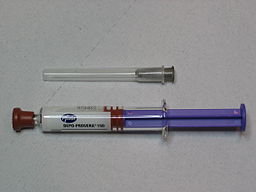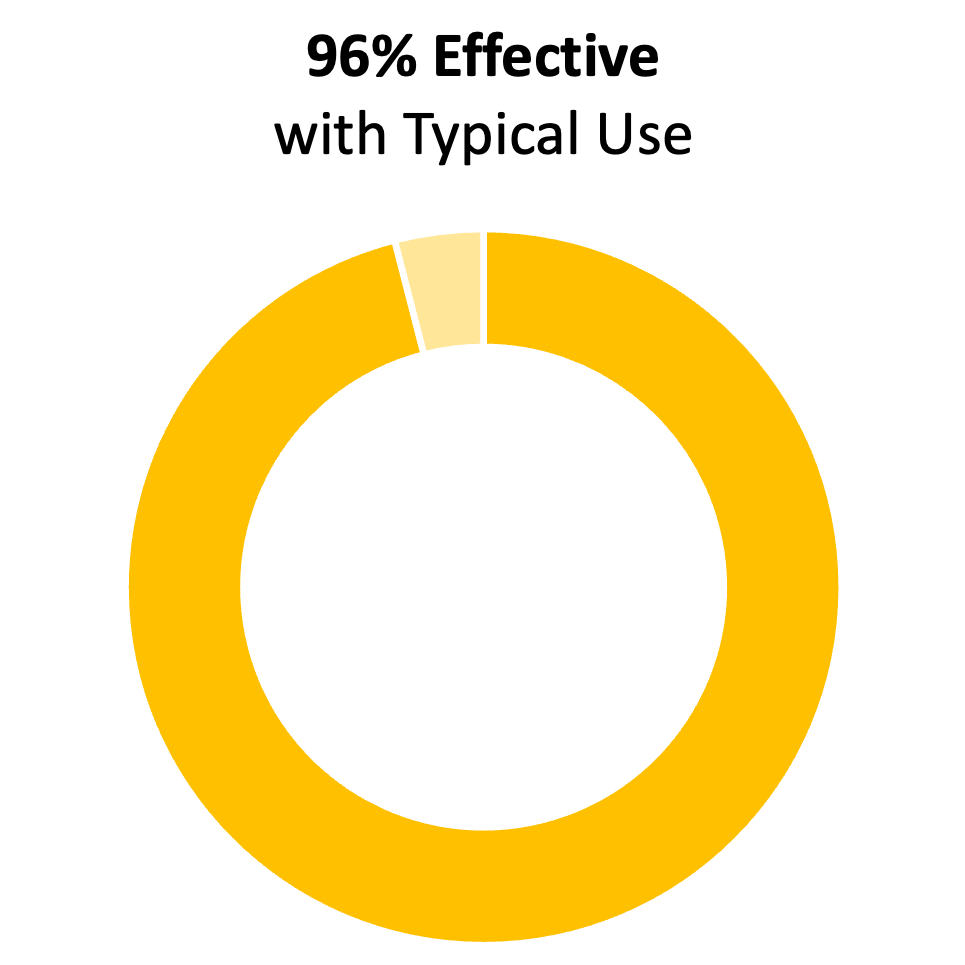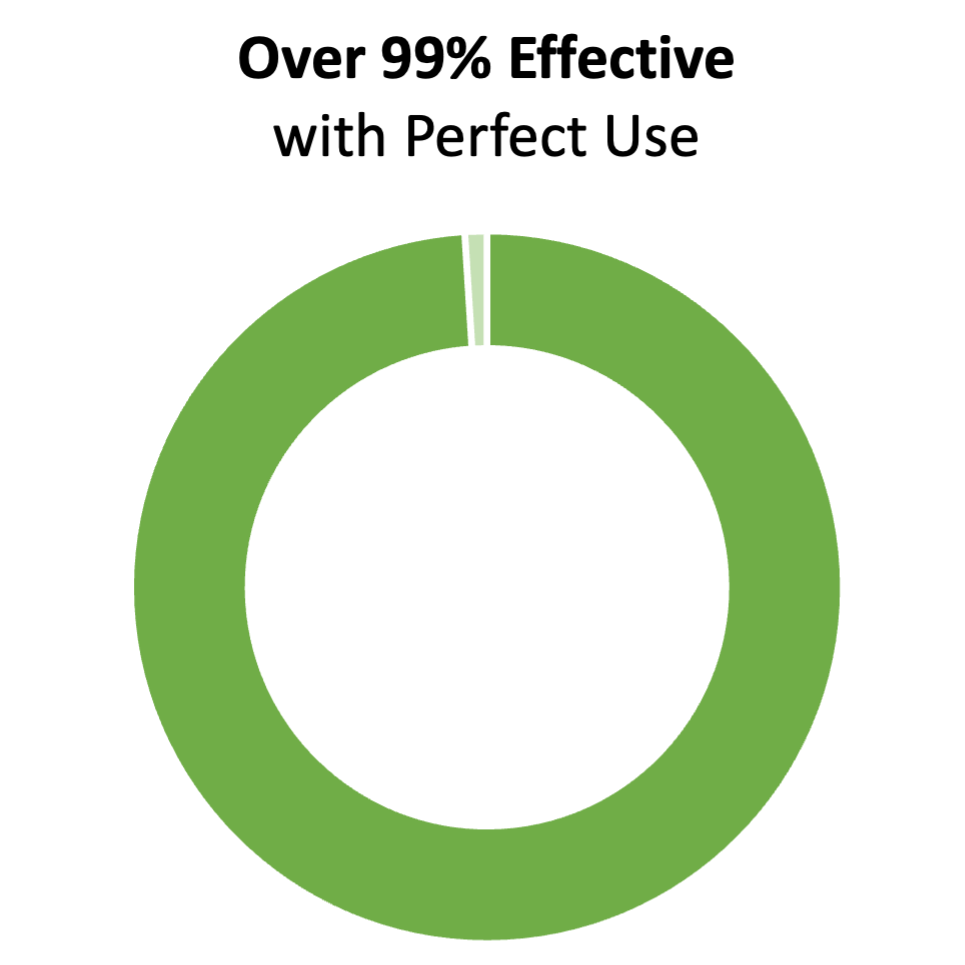The Shot
Quick Facts
Moderately effective
Doesn’t reduce your chances of getting an STI
Lasts for 3 months
No one knows you’re using it unless you tell them

More About the Shot
- The shot, most commonly known as “Depo”, or “DMPA”, is an injection. It has a hormone in it that stops eggs from leaving the ovaries.
- The shot also thickens cervical mucus. This blocks sperm from getting to the egg. If sperm can’t get to an egg, you can’t get pregnant.
- There are two types of shot:
- DMPA-IM: This shot is an injection into your arm muscle. It is given by a medical professional in a health care setting. It lasts for 13 weeks.
- DMPA-SQ: This shot is a subcutaneous injection. It can go in either the abdomen or upper thigh. You can give it to yourself at home, or go to a clinic. It lasts for 3 months.
- Who Can Use DMPA-SQ?
- Anyone who can use the shot for birth control can use DMPA-SQ. This is regardless of age or if they have used the shot for birth control before. Good candidates for self-injection include people who are experienced in self-injection of other medications. These include people who use injections to induce ovulation for IVF, people with multiple sclerosis who self-inject medication, and people who inject insulin for their diabetes. Experience with self-injection is not required for using DMPA-SQ.
- Who Can Use DMPA-SQ?
How to Use the Shot
- DMPA-IM:
- Make an appointment to get your shot.
- Talk with your provider when you get the shot. This is so you know how soon after the injection you are protected against pregnancy.
- Be sure to keep your appointments to get a new shot every 3 months.
- DMPA-SQ:
- You can ask your provider to teach you how to give yourself DMPA-SQ shots. They can do this via telehealth or in person.



Effectiveness
- More than 96% effective with typical use. This means that on average, 4 out of 100 people using this method will get pregnant in a year.
- More than 99% effective with perfect use. This means that if the shot is used correctly all the time, less than 1 out of 100 people will get pregnant in a year
- You can improve effectiveness by:
- Getting your shots on time—you can set a reminder on your phone to help you remember!
- Using another method, such as a condom for seven days, if you wait more than 15 weeks between shots with either DMPA-SQ or DMPA-IM.
Benefits
- It’s an easy method to use. You only need it 4 times a year!
- It doesn’t interrupt the heat of the moment.
- Birth control is covered for 3 months at a time.
- It’s private. No one has to know you’re using it.
- It can lighten periods, or they may stop altogether.


Side Effects and Limitations
If you have side effects, they won’t stop right away because you’ve already had the shot. Most of the time they will go away after a few months.
Side Effects
- Some people have longer, heavier periods or spotting in between periods. This is mainly during the first 6 to 12 months.
- Breast tenderness
- Headache
- Nausea
- Weight gain, most often in younger people
- Change in sex drive
- Increased risk of temporary bone loss, which returns after stopping DMPA
Limitations
- DMPA-IM: You need to see a provider every 3 months for your next shot.
- For people in their 40’s, receiving either shot for longer than 2 years is not advised. This is because bone strength may not return to normal.
- Both shots can delay your ability to get pregnant for up to 9 months after you stop them. That’s because the medication needs to work itself out of your system before you start ovulating again.
- Neither shot will reduce your chances of getting a sexually transmitted infection (STI).
Family PACT Coverage
If you are eligible, Family PACT covers the cost of the shot. A provider can help you decide if the shot is the best option for you.